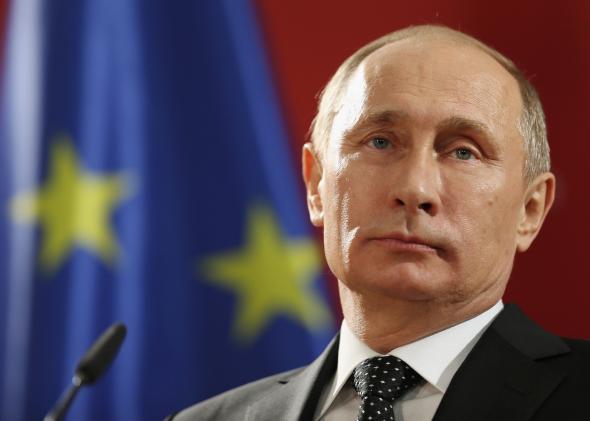The MH17 crash does appear to have changed the conventional wisdom that European countries would never agree to serious economic sanctions against Russia as long as they were dependent on Moscow for energy. In coordination with new U.S. sanctions on Russian banks, the European Union has “imposed an embargo on new arms sales to Russia and limited sales of equipment with both civilian and military uses to Russian military buyers.” The coordinated measures are also meant to hit the Russian economy where it hurts by restricting access to the oil industry equipment that Russia needs for its ambitious plans to drill in the Arctic.
The New York Times editorializes that “these punitive and carefully orchestrated actions go considerably beyond any previous sanctions.” That certainly seems true. But will they be any more effective on Russian government behavior than previous measures?
Not even President Obama seems confident about that, telling reporters yesterday, “Obviously, we can’t in the end make President Putin see more clearly. Ultimately that’s something that President Putin has to do by—on his own.”
While recent diplomatic breakthroughs with Iran and Myanmar have somewhat improved the reputation of international sanctions—though those breakthroughs have both fallen short of initial hopes—they still don’t have a great track record at actually changing regime behavior, accomplishing their goals only about one-third of the time, according to one analysis.
Sanctions tend to be more effective at inducing specific policy changes than fomenting regime change, as Messrs. Castro and Mugabe will tell you. They also tend to work better against countries that are sensitive about their international reputations and have an interest in maintaining international economic and political relationships—apartheid South Africa, for instance—rather than closed-off absolute dictatorships like North Korea.
In one sense, this seems like an ideal application for sanctions. What the U.S. and EU want from Putin is fairly specific—stop supporting the separatists in eastern Ukraine—and even with China, Russia’s energy export-driven economy can’t afford to be cut off from global markets, and the Russian people—particularly more well-off citizens—don’t want to live in a pariah state.
The thing is, while Putin’s popular support is based to a large degree on his ability to deliver economic growth, it’s also premised on his ability to keep Russia’s place in the world as a great power, the kind of country that doesn’t back down in the face of American and European pressure. The sanctions may deliver a serious hit to the Russian economy, but it will take a while to trickle down to most citizens. In the meantime, Putin is more popular than ever because of the showdown over Ukraine, and any action that looks like backing down would seem politically risky.
It may be that there’s more going on beneath the surface within the Russian political and economic elite. Germany’s Der Spiegel recently reported that “according to German intelligence it is quite possible that some of the oligarchs who are worried by European Union sanctions will soon start putting economic interests above political concerns and try to put the brakes on Putin.” But, for now, that appears a bit speculative.
In addition to the sanctions, the main factor to watch right now is that despite the pro-Russian rebels’ seemingly inexhaustible access to weaponry, the Ukrainian military is pushing rapidly into eastern Ukraine. I don’t think it’s likely we’ll see any announced policy changes from Russia, which denies that it’s arming the rebels, anyway, but it seems more possible that Moscow might simply slowly and quietly allow the eastern Ukrainian revolt to be crushed.
Even if that happens, it will probably be some time before relations between Russia and the West return to normal. Russia has already made retaliatory gestures, including banning Polish produce and slapping travel bans on U.S. officials linked to Guantánamo.
I wrote back in April that sanctions imposed over Ukraine might actually prove more important for the next U.S.-Russia crisis by giving Washington a bargaining chip—the offer of lifted sanctions can often be more effective than the threat of imposed ones. The anti-Moscow measures taken by Western governments have only gotten harsher since then, but I still suspect that’s the case.
